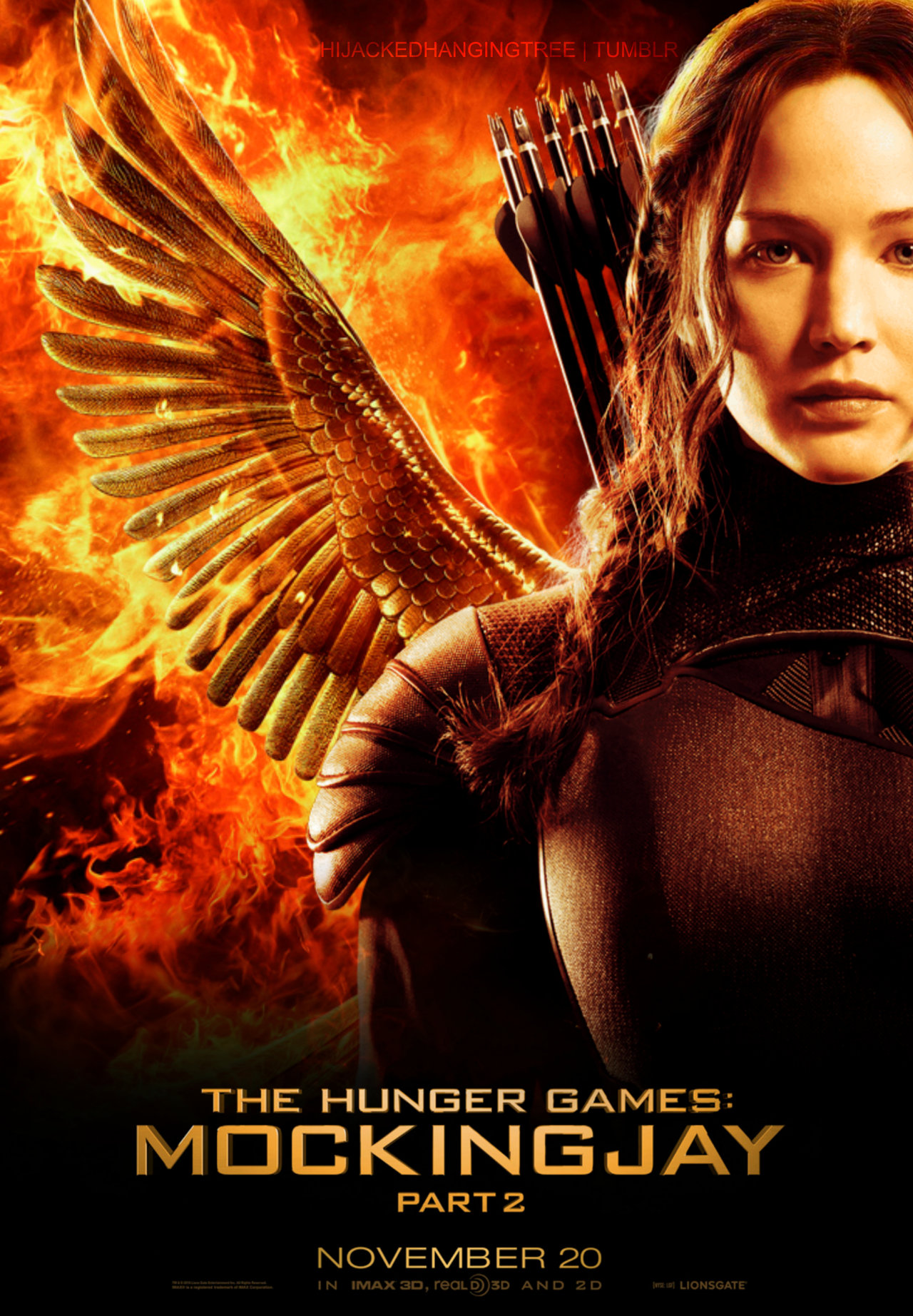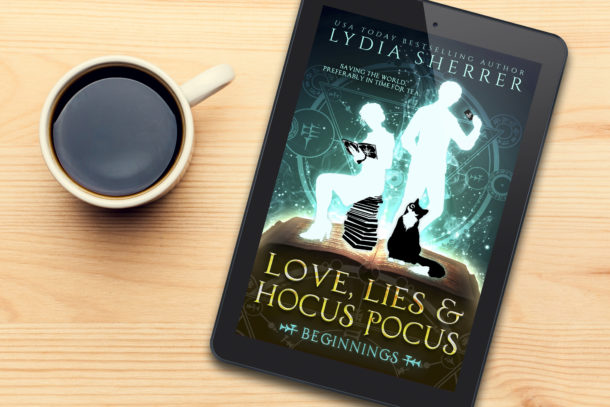Last night I saw Mockingjay Part 2, the last in the Hunger Games series about Katniss Everdeen and her fight against the Capitol to bring freedom to Panem. I am pleased to say that, in all major respects, the last movie is faithful to the book.
There are, however, some minor changes that made the story more palatable to a wider audience and less traumatizing. While I understand why the movie makers would implement such changes for marketability, I think it takes away from Suzanne Collin’s ultimate message: War is a horrific thing. Though the ultimate benefit for society may be positive in the long run (i.e. WWII), it ruins and wrecks us in far worse ways than we could imagine. In this story, good people die, beloved characters are slaughtered in horrible ways, people you thought were friends change into war machines, and the whole cause you’re fighting for becomes as bad as the people you’re fighting against. While in the movie Katniss seems to overcome the horrors of war and her PTSD relatively quickly, in the book it takes her over a decade to really even start finding peace.
So with the series complete, why has this story been so popular? Beyond the obvious reasons of exceptional actors, a wonderful director, and amazing visuals there has to be a deeper reason, something that calls out to us as humans. It’s the same thing that calls out to us when we watch the Lord of the Rings, Star Wars, and Harry Potter (though not to the same degree I would contend, those three are in a category all by themselves).
Remember, we tell stories to better understand ourselves. Stories get us out of our own heads and into the experiences, thoughts, hopes, and horrors of other people. The Hunger Games resonates firstly because everyone loves Katniss, the reluctant hero that endured so much and, in the end, made the right decision from her heart. We hope to be that person, should the time come. Of course, we gloss over the death and pain, not internalizing what it would REALLY be like to be in her position. That’s where movies help out, giving us visual evidence of what, before, was only in our imaginations.
Secondly, it resonates because we are hardwired to cheer for just causes. Fighting oppression, discrimination, and a privileged elite that acts cruelly and unjustly toward all others is a deeply ingrained need that we, for the most part, ignore in daily life. Seeing these movies reminds us that there are battles out there to be fought, whether against poverty, religious oppression, bigotry, or whatever else plagues us, and we should be brave like Katniss, fighting to the bitter end in spite of the costs.
For there will be costs. The third reason this story is so powerful is because it tells an ugly truth. We live in a fallen world, infested with sin that corrupts so many hearts, minds, and intentions with greed, hate, jealousy, pride, and selfishness. Evil exists, and it is carried out by us. Humans. People who are living, breathing, loving vessels of life made in the image of God. Let me give an example: ISIS suicide bombers think they are doing the right thing. In their mind, they are pleasing their god and securing for themselves a place in paradise, a selfish, but ultimately universal motivation for actions. This doesn’t make anything they do right, but it reminds us that they are like US. Just people, though people raised in a different culture and inundated with a different worldview (we were taught the “American Dream,” they were taught the “Western Devil”). Their choices are their responsibility, but they don’t think they are evil. We must fight, not by dehumanizing them, but by understanding them. We might have to kill, but let us not kill without shedding tears for their lives, for the tragedy of sin that turns us against our fellow man.
As moving and profound as Suzanne’s series is, however, it leaves out a crucial point. the Capstone, really. In Suzanne’s world, what is the point of it all? Freedom? But there will be another war, more evil will arise. It is the human condition. So why bother? Why should anybody give up their lives in war, or fight for justice. Why should we be kind? Loving? Fair? Compassionate? Why was the Capitol the enemy? Why is oppression wrong? All of these are truths that we know, deep in our bones, but the Hunger Games leaves out the WHY of all of it. I understand, perhaps, why Suzanne left this out, because the WHY is fiercely argued about and is the reason for the major world conflict going on right now: is there a God, and if so, who is He?
I believe that God’s son, Jesus, died on the cross to pay the penalty for our sins so that his people have a chance to be reunited with him as he carries out his ultimate plan to redeem the world and put an end to sin and death. Because of this, I can take the Hunger Games and view the timeless truths it proclaims with hope, because I know what I am ultimately fighting for. I know that this world can never fix itself, and there will never be an end to the terrible war, death, and heartbreak of the kind that Katniss endured. But I put my trust and hope in our Creator, who gave his only son to redeem what we broke by rejecting Him in the garden, so that he can make all things new again. Many people think I’m a fool for believing this. I believe I would be a fool to not believe it. I have a hope, unshakable and all sustaining, that guides and strengthens me in a world as dark, in places, as the Hunger Games. It gives me the how and why to fight the good fight, just like Katniss.
And that is why we love this story so much. Because even if we don’t agree on the WHY, we know there is one, and we know it’s worth fighting for.




Haven’t read the books; you make the movie sound worth seeing, for sure.
“Katniss” herself could benefit from reading this post… who know? Maybe she will.
Thanks for the comment! I’m pretty sure Jennifer Lawrence won’t be stumbling across my blog anytime soon, but it’s here if she ever wants to see it ;). I think you’d enjoy the movies, they make you think.